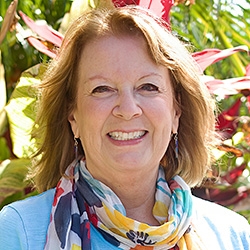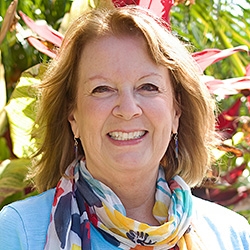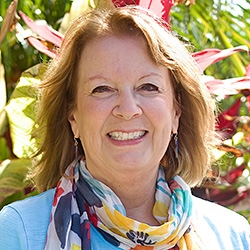

NVC Resources on Trust
-
From the depths of internal winter to the melting open in the warm sunshine of spring to rest in the ocean of Spirit, this poetry is a journey of discovering deep Presence through the human experiences so many of us share.
-
Trainer Tip: Giving up on blame and taking responsibilty for our choices is immensely empowering. Mary offers a tip for growing in this direction.
-
How can we live life fully connected to the core values of nonviolence, no matter the circumstances, internal or external? Join Miki Kashtan as she shares the 17 core commitments that have served as a compass for herself and hundreds of others around the world as well.
-
Conflict is a normal and natural part of life. To varying degrees, it happens whenever two or more people consistently spend time together. Resolving conflict effectively and peacefully, in a way in which all parties feel respected and valued, does not feel natural for those of us who grew up with punitive, adversarial, or avoidant approaches to conflict. Eric offers some tips for approaching conflict.
-
One of the most important things you can do to live a meaningful and rewarding life filled with vitality is reclaim your emotions. Eric offers a tip to reclaim your emotions, rescuing you from the numb and deadening state of “fine."
-
Trainer Tip: Even if we don't agree, acknowledging others' realities can help demonstrate that we're including their feelings and needs in the conversation. Creating space for your reality and theirs can also bring a sense of connection, understanding, inclusion, abundance and fullness in life. Try it today. Read on for an example.
-
Two NVC trainers went into dangerous, war torn territory to share the skills they found so valuable but end up learning that they need to first apply those skills before those they came to help could receive what they had to offer. Only when the foundation of connection and trust was built could they mediate the conflicts using empathic communication.
-
Developing interpersonal relationship skills in congregations is integral to working with the conflicts that arise. These skills can be applied to any spiritual community.
-
Listen as Mary Mackenzie shares an eight step path to create your own NVC learning activities, based on your own NVC learning experience. In this session, Mary uses the value of requests and observations as teaching examples.
-
Come. Let us journey together into our own authentic Life force: the essential living energy that permeates all of our lives.
Your journey will begin at the center: with the divine / life force, or soul force.
Robert Gonzales shares how this fundamental life energy is the tender expression of your inner being, or soul. It unfolds through the heart as your deepest longings, which manifest themselves in all forms of human needs and values. When you live from the energies of compassion, creativity, love, and clarity – while remaining wholly grounded and aware of needs and values – then you are living your passion… You are living the Self-In-Life.

Quick Links
Subscription Preferences
Stay In Touch!
Looking for ways to keep up with NVC Academy news, get special offers, free resources, or words of inspiration? Here are five ways to stay engaged:










